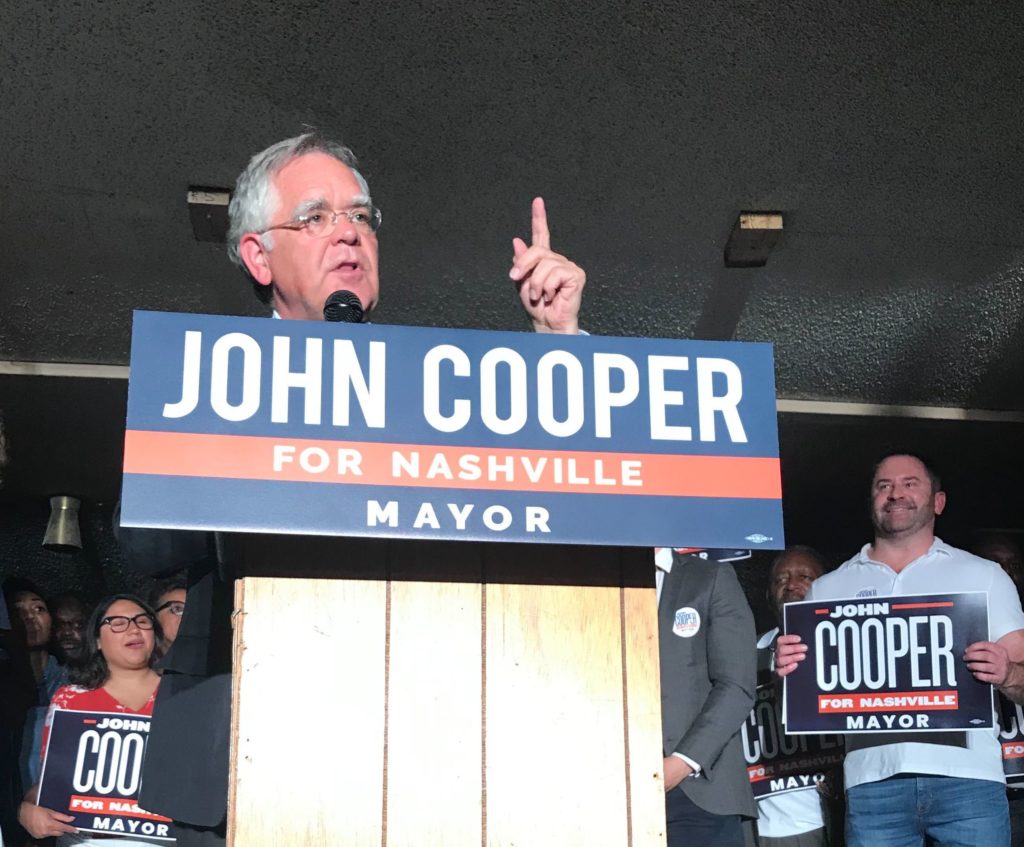
Before Councilman John Cooper ran for mayor of Nashville, he was a perennial thorn in the side of Metro government, giving a hard no to a number of the city’s high-profile development plans and openly criticizing many Metro agencies.
It turns out all that naysaying resonated with the voters.
Cooper came out ahead of incumbent Mayor David Briley in 85% of the city’s precincts, according to voter analysis by WPLN. Cooper’s success was, in part, his ability to channel residents’ frustration with the state of neighborhoods.
He had fought over a proposal to build on Fort Negley. In Edgehill, he had criticized a plan to lease part of a neighborhood park to Belmont University. And then there was that kerfuffle with the cherry trees and the NFL Draft.
“He’s that guy,” says Jim Gregory, an East Nashville community activist who works to preserve trees at risk of being torn down by development. “He understood the zeitgeist of the city and asked the questions people wanted to hear answers to.”
Gregory says Cooper was a spokesman for what Nashville’s angry residents wanted to say but didn’t have the platform to do. “He is talking for the people,” Gregory says.
“We’re Tired Of Waiting”
Cooper’s lead was especially large in African American neighborhoods. Hamid Abdullah, who hosts the weekly radio show The Black Family Talks on WVOL, says Cooper tapped into the frustration black Nashvillians feel about being left behind while the rest of the city booms.
“For the past 10, 15 years, everything has been in the downtown area,” Abdullah says. “And everyone has been benefiting but us.”
He says Cooper’s message about neighborhoods first and big business second struck a chord.
“If you want my vote, I have to be your priority. We’ve always been told to wait,” Abdullah says of the black community. “We’re tired of waiting.”
When asked for comment, Briley’s campaign spokesman, Morey Hill, said Cooper’s pitch to neighborhoods doesn’t reflect his track record.
“Improving our neighborhoods requires investing city dollars into things like sidewalks, roads, parks and libraries,” Hill wrote in an email. “And Cooper has voted against more than $600 million in neighborhood investments in the past two years on the council.”
9(mda2nzqwotg1mdeyotc4nzi2mzjmnmzlza001))

